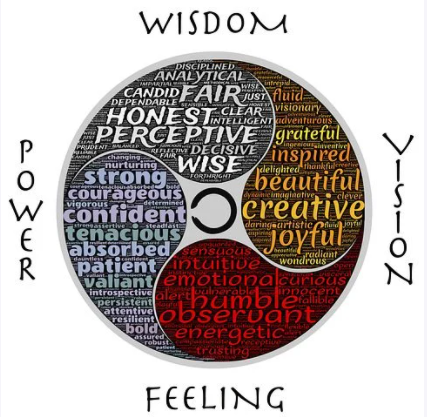|
|
Our world is filled with millions of people who are not aware they are self-destructive. This is the root cause of a whole host of problems. Their lifestyles include failures in school, job or career, destroyed relationships and marriages, criminal behavior, substance abuse, and depression. All ending frequently with suicide.
Finding emotional balance combines self-awareness and personal control. Achieving emotional balance doesn’t require any special knowledge or education, but does require a little work and some good old-fashioned common sense, coupled with a good, long look inward.
Be Sensitive to Yourself
Self-awareness and self-understanding involve being sensitive to our dark moods. From time to time we all have periods of depression, anxiety, fear, anger, loneliness and disappointment. Being sensitive and taking the time to understand the causes and the social situations that trigger these feelings can help to avoid self-destructive actions.
While it’s important to live life in the present, it is equally important to live according to today’s values – not those of yesterday’s world taught us by our parents and teachers. Life can be difficult enough without trying to shoehorn oneself into an outdated world.
We often carry excess baggage from previous experiences. These can take the form of anger, resentment, humiliation, pain and frustration. Unfinished business gets dragged into current conversations, muddying up the waters of otherwise good relationships with our parents, spouse, children, boss etc. Why not take a giant step foward and get rid of that old baggage. If you don’t excactly know how, take a little time and learn about forgiveness.
Fantasizing the Perfect Relationship
Many people create fantasies about what kind of spouse and relationship they want. They may have pre-conceived ideas about what kind of marriage, children, career and friendships they will have. The other parties are not aware of the fantasy role placed on them. Any resistance or manipulation by the dreamer can become a problem. Avoid unnecessary disappointment arising from unachievable fantasy roles placed on others.
Most of us were raised to hold our feelings inside, especially those of pain, anger and humiliation. “Keep a stiff upper lip!” This was often the advice we were given. After all, we wouldn’t want to hurt anyone’s feelings, especially if they don’t have any, and have just unknowingly hurt you. Learn to express yourself assertively without causing conflict.
Intuition Is Not Enough
Sometimes trusting our intuition, thinking we know the correct answer can be a flawed strategy. Information that we stored away from a past experience may be incomplete or only partially true. Relying on heuristics in significant circumstances without some cognitive evaluation can be self-destructive.
Avoid accepting short-term triumphs or monetary gain that end up costing you much larger long-term pay-offs. Don’t waste precious time by entering into short-term relationships or mundane dead-end jobs. Turning in incomplete or poorly prepared assignments instead of excercising a little self-discipline to come up with well-planned and thought-out strategies can be a bad mistake. Self destruction like this can be eliminated by simply thinking ahead.
Emotional balance can alleviate stress, pain, anxiety, feelings of guilt, worthlessness, depression, and tendencies toward loneliness and blaming. It can also improve self-esteem, self-assertivess, creativity, productivity, decision-making and success in achieving your goals.
This report is not a diagnosis. We hope this information can guide you toward improving your life.
Review our Knowledge Base or the links displayed on this page for similar and related topics.

